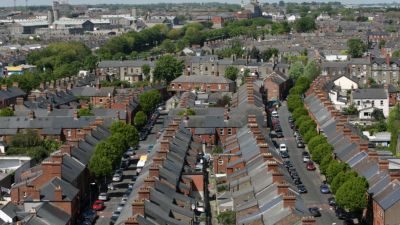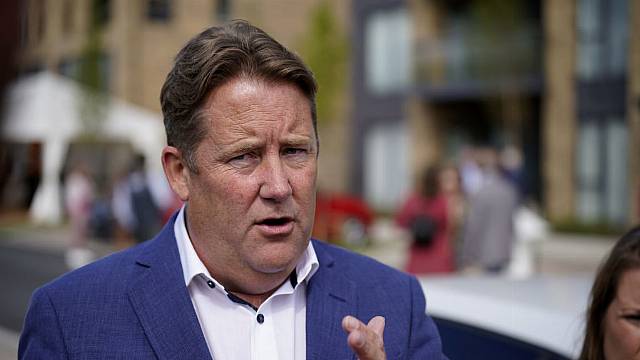Updated: 12.45pm
The Government has been slammed for underspending the capital budget on housing worth over €1 billion.
New figures show that about €1.52 billion of the Department of Housing's capital budget went unspent between 2020 and 2022, including just over €1 billion intended for social and affordable housing.
Sinn Féin's Eoin Ó Broin said the figures, revealed to him in a series of parliamentary questions, showed that "the Government’s massive underspend on social and affordable housing is contributing to rising levels of homelessness and housing need".
As the Irish Examiner report, figures provided to Mr Ó Broin by the Department of Housing show that from 2020 to 2022 the department underspent its capital budget by €1,517,999.
Mr Ó Broin said that the Covid-19 shutdowns to construction could explain part of the underspend, but that it has continued into 2023.
“Of particular concern is that €1,004,926 of the underspend is from the capital budget for social and affordable housing delivery.
“This housing underspend has been increasing each year Darragh O’Brien has been Minister from €92 million in 2020 to €441 million in 2021 and to €471 million last year.
“While covid-19 construction site restrictions were a factor they are not the main reason why so much money for social and affordable housing is being underspent. Nor does it explain why the annual underspend is increasing each year, even after covid.
“Indeed, information released by the Department of Finance this week shows the trend has continued into 2023 with a 29 per cent capital underspend in the Department of Housing in the first three months of this year."
Mr Ó Broin put the underspend down to "red tape" and accused the Minister of "incompetence".
“The level of red tape and delay imposed on local authorities and approved housing bodies by the Department of Housing and the Department of Public Expenditure and Reform is the principal problem.
“The unspent capital funding could have delivered at least an additional 4,000 social and affordable homes. This could have housed half the total number of households currently in Department of Housing-funded emergency accommodation.
“Local authorities, approved housing bodies and opposition politicians have been highlighting this problem for years yet the Minister for Housing has refused to act. His inertia and incompetence has resulted in a billion euros of much-needed housing funding unspent, at least 4,000 public homes not built and thousands of people homeless as a result.”
'Not surprising'
Reacting to the figures, the representative organisation for approved housing bodies (AHBs) said the underspend is “not surprising”.
The Irish Council for Social Housing (ICSH) said the construction sector lockdown of 13 weeks in 2021, with some exceptions, “was a very challenging experience for residential housebuilding”, particularly as it came after a seven-week construction lockdown and rolling delays in 2020.
It said Brexit-related supply obstacles, price increases and workforce issues also affected delivery.
“The cumulative impact of this meant that many social housing projects were delayed and others were unable to commence on time,” it said.
ICSH chief executive Dr Donal McManus said there was an issue around the wider economic viability of homes during the period, which led to schemes being revised or not started in the first place.
Dr McManus said “a continuum of problems” led to thousands of units unable to progress, while AHBs had previously reached delivery of 4,000 homes per year in 2019.
Constraints to delivery in 2022 included construction price “hyperinflation”, interest rate rises, capacity issues and the availability of affordable land.
'Strong pipeline'
However, the group added it is in communication with the department to review and streamline funding and approval processes under a range of schemes.
“For example, the decision to discontinue limiting the Payment and Availability Agreement (P&A) to a percentage of local market rent, announced with the recent publication of the Capital Advance Leasing Facility (CALF) review, is a key measure that will ensure the viability of thousands of AHB homes in both urban and rural communities,” the ICSH said.
Dr McManus said there was a “strong pipeline” in the AHB sector and added he was hopeful that all stalled units could be delivered following a review of the funding programmes.

“There were a number of schemes that were blocked, thousands of homes were stalled at the end of last year due to these viability issues,” he said.
He added the programmes had to be adjusted to reflect market conditions.
“With the new terms of conditions we’d expect more continuous delivery at a high level.
“The bottom line is there’s a strong pipeline in the sector and we’re keen to deliver for both social housing and cost rental, that commitment is there.”







